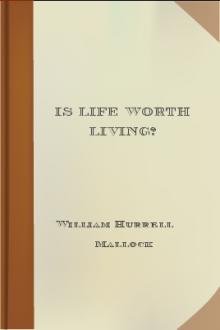Analyzing Character, Arthur Newcomb [popular romance novels .txt] 📗

- Author: Arthur Newcomb
- Performer: -
Book online «Analyzing Character, Arthur Newcomb [popular romance novels .txt] 📗». Author Arthur Newcomb
Contrawise, we have often seen hard-headed, shrewd, skeptical, grasping, unprincipled, aggressive, fighting men in professions where they did not belong; in professions requiring sympathy, credulity, kindness, tact, generosity, unselfishness, and other such qualities. We have not, in this chapter, outlined all of the different classes of misfits. That would be impossible. We have, however, referred to the most common of them. Probably nine-tenths of all the misfits which have come under our observation could be classified under one or more of the heads we have outlined in the foregoing chapter.
CHAPTER IV THE PHYSICALLY FRAILSome years ago there came into our offices in Boston a young man twenty-six years of age. He was about medium height, with keen, intelligent face, fine skin, fine hair, delicately modeled features, refined looking hands, and small, well-shaped feet.
He was inexpensively, but neatly, dressed, and, while somewhat diffident, was courteous, affable, and respectful in demeanor. After a little conversation with him, we asked him if he would be willing to appear before one of our classes and permit the students to try to analyze him, decide what his aptitudes were, and for what profession he was best fitted. An evening or two later he appeared and we placed him before the class. After some little examination of his appearance, this is the judgment passed upon him by those present:
"Fairly observant; capable of learning well through his powers of observation; good intellect, of the thoughtful, meditative type; a fair degree of constructive ability; in disposition, optimistic, cheerful; inclined to take chances; sympathetic, generous, sensitive, kindly, well disposed, and agreeable; rather lacking in self-confidence and, therefore, somewhat diffident, but courteous and friendly in contact with others; responsive and, therefore, easily influenced by his associates, and affected by his environment. Lacking in sense of justice and property sense. A man of natural refinement and refined tastes; fond of beauty, elegance and luxury. Energetic and alert mentally, but rather disinclined to physical effort. Somewhat deficient in aggressiveness, but endowed with an excellent constructive imagination, and so great mental energy that he would be able to take the initiative in an intellectual way, especially in the formation of plans and in the devising of means and ways. Fond of change, variety; loves excitement; likes social life, and somewhat deficient in constancy, conservatism, prudence, and responsibility. Keen, alert, somewhat impatient and restless. Well fitted by nature for intellectual work of any kind; with training would have done well as teacher, writer, private secretary or high-class clerical worker, but expression indicates that, through lack of training, he has failed in physical work and has fallen into evil ways."
After this analysis had been carefully made, we excused the young man and explained that thirteen of his twenty-six years had been spent in jail. He had been left an orphan early in life and secured so little education that he was almost entirely illiterate.
THE EASY DESCENT TO CRIME
As soon as he was old enough, he was set to work at the only thing he could do, namely, manual labor. He was small and slight for his age, and the services he was able to render were not worth much. He, therefore, received very small pay. Because of his physical disabilities, he was behind the other boys in his gang and suffered frequently from the tongue-lashings of an unsympathetic foreman. His pay was not commensurate with his tastes. He constantly felt the desire for finer, better, cleaner things than he was able to earn. The work was hard for him; he suffered much from the punishment inflicted upon his tender hands, from muscular soreness and from weariness. As the days rolled on, he grew weaker, rather than stronger, and became weary earlier in the day. Finally, the time came when he felt that he could endure the taunts of his foreman no longer, and he was about to give up when the foreman, exasperated with his inefficiency, his clumsiness, and his weakness, discharged him.
Having been discharged, it was difficult for him to find another place to work. At this critical stage, being out of money, and having fallen in with idlers—and worse—he was influenced to use his keen intellect and ability in plans and schemes, to commit a small crime, which yielded him $10 or $15. Being a novice in crime, not naturally a criminal, he did not protect himself from discovery and punishment, and, as a result, was sent to a reformatory. After a short term in the reformatory, his behavior was so good that he was released. After his release, a kind-hearted person, who had observed him and liked his appearance, secured another position for him. This also was at manual labor. At first he entered upon his new work with a determination to succeed, to live down the stain upon his character caused by his previous speculation, and, therefore, to live an honorable and successful life.
STRUGGLING AGAINST ODDS
He worked hard and did his best, but the best he could do was not good enough. He possessed no manual skill, he had no strength, and little by little he again became physically tired out, mentally discouraged and sore, and, having once committed a crime, found it easy to seek his former associates and drop again into the old ways. An opportunity presented itself to rob a companion's pocket of a few dollars, and he did so. Again he was sent to the reformatory, this time for a longer term. Then, until he came to our office, his career was a repetition of what has already been related. A few months or a year or two in a reformatory, a jail, or a penitentiary, a month or two trying to rehabilitate himself in some form of manual labor, and, then, inefficiency, incompetency, lack of skill, lack of strength, and discharge, to be followed by another attempt to add to his resources by some petty crime.
For several years following this first interview with Mr. L. we followed him, and did our best to assist him to enter upon some vocation for which he was better fitted. Again and again we and other friends of his helped him to secure work, but always it was the old story. His mind was so active, so intelligent, so eager for expression, that the drudgery, the monotony, the routine, the small pay, and the consequent lack of the many elegances and luxuries he so strongly desired were too much for him. His crimes were never serious, and never those requiring great courage. He never stole any very large sums. For this reason much of his time was spent in the work house or in jail, rather than in the penitentiary. In addition to petty thieving, he had acquired some little ability as a confidence man, and was capable of ensnaring small sums from credulous or sympathetic people on various pretexts. The last time we heard of him he had called upon a friend of ours, professed his complete and permanent reform, wept over his former failures, and promised faithfully—and with the greatest possible fervency and apparent sincerity—to do better in the future. He said that he had an opportunity to make a trip on a whaling vessel and he thought this oportunity would be the best thing in the world for him, as it would take him away from his old, evil associates and give him an opportunity to save money and make good in a new life. He wished our friend to give him $4 to buy a ticket to New Bedford. Our friend gave him the money and also a postal card, on which he had written his own address. "Now, L.," he said, "I believe you, and I want you to show me that you are playing square with me. When you get your new position and are about to sail, I want you to write me about it on this postal card, and mail it to me so that I will know that you are carrying out your promises."
THE OLD, OLD STORY
L. promised faithfully, and said, "I want to write a letter to my mother, and tell her where I am going. I wish you would let me have an envelope and a stamp." Our friend obliged him with the necessaries, and L. left the office beaming with gratitude and profuse in his promises to return the loan as soon as he came back from his trip on the whaling vessel. A few days later my friend received a postal card, dated at New Bedford, Massachusetts. In one corner of the postal card was the notation, "Received at the post office at New Bedford in an envelope, with a letter, requesting that it be mailed here. (Signed) Postmaster."
Here was a man so well-intentioned by nature, of such a kindly, sympathetic, generous disposition, so intelligent, so naturally capable mentally that, with proper training and properly placed in a vocation in which he could have used his talents, he would doubtless have become an excellent asset to society.
This case is typical of many others. They have natural aptitudes which fit them to become useful, but their talents have never been trained, their aptitudes have never been given an opportunity to develop. They have no inherent tendencies toward crime. In fact, there is no "criminal" type. Most—but not all—criminals fall into their evil ways simply because they have never been taught how to direct their mental and physical energies in a way which will give them pleasure, as well as profit.
DESCRIPTION OF THIS TYPE
The physically frail individual of this type is frail because the brain and nervous system are so highly developed that they require a great deal of his vitality and endurance to nourish them and to sustain their activities. The result is that mental powers grow and thrive at the expense of physical.
Such people have large heads in proportion to their bodies. Their heads also are inclined to be very much larger above the ears and in the neighborhood of the forehead and temples than at the jaw and at the nape of the neck. This gives their heads a rather top-heavy effect—like a pear with the small end down—and their faces a triangular shape. Their jaws are usually fine and slender, and their chins not particularly broad and strong.
Such people have very fine hair and fine skin. Their nerves are sensitive and close to the surface. Their entire build of body is delicate and slender. Their hands and feet also are usually delicately and slenderly fashioned; their shoulders are narrow and oftentimes sloping. It is folly to talk of building up rugged, muscular and bony systems by means of strenuous exercise in people thus endowed. Much, of course, can be done to strengthen and harden the muscles, but they are frail physically, by nature, and can never be anything else.
VOCATIONS FOR THE PHYSICALLY FRAIL
People with this type of organization are not inclined to be skillful with their fingers. They do not care for physical work of any kind; they do not take an interest in it and, therefore, cannot do it well. Properly trained, men and women of this type take their place in the professions. They are teachers, preachers, lawyers, educators, reformers, inventors, authors, and artists. Among those of mediocre abilities we find clerks, secretaries, accountants, salesmen, window trimmers, decorators, advertisers, and others working along similar mental lines. When such people are not trained and educated, they are misfits always, because they do not have opportunities to use to their fullest extent the natural intellectual talents with which they have been endowed.
THE





Comments (0)